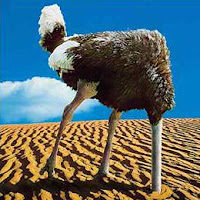Deus ex machina is Latin for "God out of the machine." It refers to cheesy Greek plays that used a crane (Gk. mekhane) to lower actors that played gods onto the stage.
The "gods" would then bring resolution to seemingly inextricable problems in the plot and bring the play to a close.
The Greek tragedian Euripides (ca. 480 BC – 406 BC) used the "crane" in more than half of his plays. Aristotle criticized the use of the Deus and argued that the resolutions of a plot should arise from the previous actions in the play.
A more accurate translation of idea into English might be "God from our hands" or "God that we make." The "God of the gaps" idea seems to unapologetically take advantage of this. Instead of seeing God in every detail of the physical world, God is used to fill the gaps in our scientific knowledge.
The result of this thinking, is the more we discover, the more God is relegated to domain of the useless. I wonder how often we employ a Deus ex machina?
When we only wheel God into the narrative to fill the gaps of our understanding, we aren't engaging the Creator of the cosmos, but rather a "God that we make." May we instead embrace the tension and the beauty of seeing God as an intrinsic part of every area of our world.



